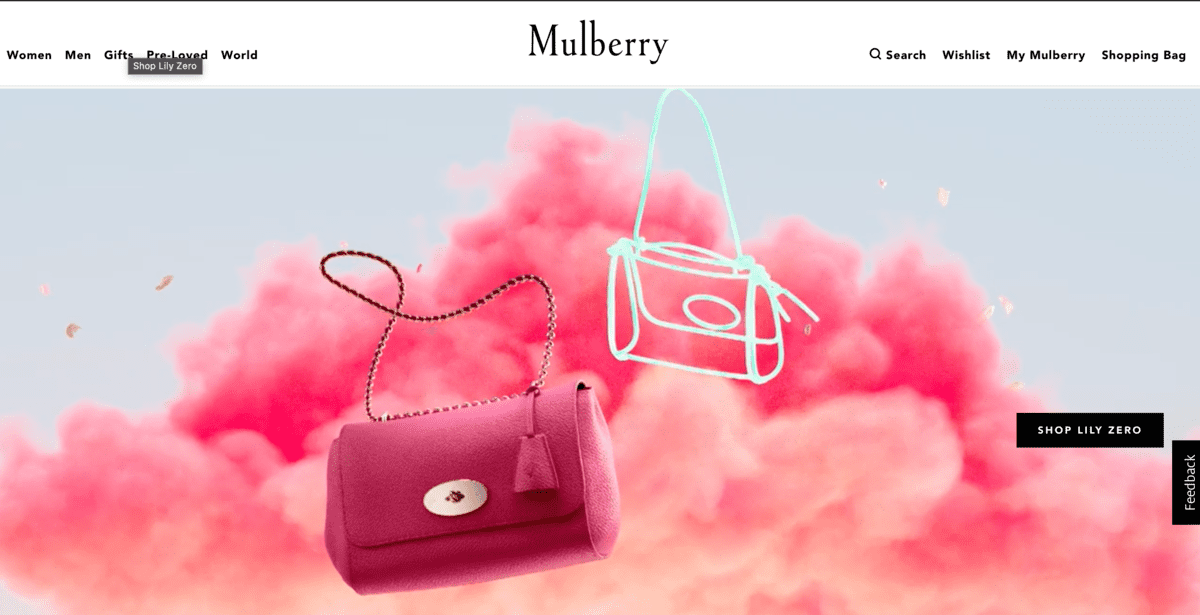Mulberry ecommerce sales were given a boost in 2021 when the luxury leather brand turned its closed shops into online warehouses during the Covid-19 pandemic and associated lockdowns.
Mulberry, ranked Top250 in RXUK Top500 research, used a single view of its global stock to add products stocked in its shops to its digital channels during lockdown, reducing issues with orders and enabling goods to be shipped faster. That led to an online sales boost for the business – with some shops achieving their normal sales levels via digital, despite Covid-19.
Mulberry reported in its results for the half-year to September 26 2021 that its digital business had helped to shield it from the worst of Covid-19. First-half sales of £48.9m were 29% down on the same time a year earlier, with in-store sales down by 55% at £19.4m. Digital sales of £23.4m were 68% ahead. However, the retailer had to cut a quarter of its global workforce in the first half of the year and as of September 26 had reduced its store estate to 111 shops.
The single view of the stock was already in place when shops had to close since Mulberry had previously worked with Google Cloud to make use of the data being produced through sales both in its shops and online.
When Mulberry solutions architect Neill Randall started working at the brand, he says that: “All the data at Mulberry was coming in at different times, from different silos, in different formats, into different systems, making it impossible to gain end-to-end visibility. To create a global view of our stock, products and customers we needed to bring all that information together.”
The brand used a centralised data solution on Google Cloud to connect up data that was previously spread across several different systems.
“This extra capability would be useful at the best of times, but it proved to be even more lucrative when the brand had to shut its doors during the UK’s lockdown in March 2020,” says Google Cloud UK&I managing director Pip White in a blogpost.
“Transforming its closed bricks-and-mortar stores into warehouses for online sales, Mulberry was able to add all products still out on the shop floors to the company’s digital channels. The benefits quickly made their way to customers, who now had an even larger selection of products to choose from when shopping online. Better still, with an improved view of each order status, issues were easier to resolve and customers received their favourite Mulberry items faster than expected.”
The retailer’s centralised view of the data meant that as well as being able to see where stock was located, it could also use its customer data to make marketing campaigns more relevant and to offer hyper-personalised product recommendations. That led to a 37% increase in the click-through rate from marketing messages, and a 110% increase to return on ad spend. Mulberry sells to 25 countries through a clicks and bricks strategy.
This case study was originally published in the Global Luxury 2022 report. Download the full version here to find out more about key players, regional variants, growth drivers and more.
For a more specific overview of the UK luxury market download our UK luxury report.









